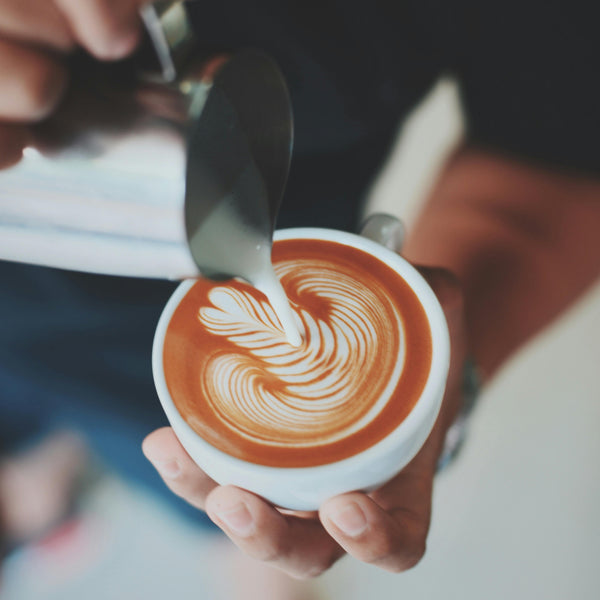Benefits of Caffeine
While it's crucial to monitor intake, caffeine can offer notable advantages when used judiciously. From enhancing physical and mental performance, how much coffee caffeine plays a positive role can depend on the amount consumed.
Benefit Category |
Description |
Weight Management |
Caffeine may boost weight loss or prevent weight gain by suppressing the appetite and stimulating thermogenesis, helping the body generate more heat and energy from digesting food. |
Alertness and Mental Performance |
A 75 mg serving of caffeine can increase attention and alertness. Higher doses (160 to 600 mg) can improve mental alertness, speed reasoning, and enhance memory. |
Sports Performance |
Recognized by the European Food Safety Agency (EFSA), caffeine in coffee can increase endurance performance, endurance capacity, and reduce perceived exertion during exercise. |
Brain Function and Neuroprotective Effects |
Caffeine affects adenosine receptors in the brain, which may enhance thinking skills and slow mental decline with age. Regular caffeine consumption has been linked to a reduced risk of Alzheimer’s and Parkinson’s diseases. |
Liver and Colon Health |
Coffee consumption might help decrease the risk of liver cirrhosis and slow the progression of hepatitis C infection. Observational studies suggest coffee has protective benefits against hepatocellular cancer. |
Cardiovascular Health |
Regular coffee drinkers have shown a lower risk of stroke, as indicated in a Swedish study involving women without previous cardiovascular diseases. |
Diabetes Management |
Longitudinal studies suggest that changes in coffee intake can impact the risk of developing type 2 diabetes, although the relationship between caffeine and insulin sensitivity is complex and requires further research. |
Cancer Prevention |
Research has associated higher coffee consumption with a lower risk of various cancers, including oral, endometrial, prostate, and breast cancer recurrence. |
Other Health Benefits |
Studies have found caffeine may protect against skin cancer, reduce the risk of developing kidney stones, and help protect against eyelid spasms and cataracts. |

Risks of Excessive Caffeine
How much caffeine is too much? Understanding the risks associated with excessive caffeine intake is crucial for maintaining your health and well-being.
Health Risks
Excessive caffeine consumption can lead to several health issues. For those wondering what does caffeine do to your body, here are some of the health risks that comes with excessive caffeine intake:
- Insomnia: Too much caffeine can disrupt your sleep cycle, making it difficult to fall asleep and reducing the quality of sleep you get, leading to fatigue during the day.
- Anxiety: High levels of caffeine can increase feelings of nervousness and anxiety, exacerbating stress responses.
- Heart Palpitations: Consuming a lot of caffeine can lead to irregular heart rhythms and increase the heart rate, which might be risky for heart health.
- Digestive Issues: Caffeine increases stomach acid production, which can lead to digestive discomfort, including heartburn and gastroesophageal reflux disease (GERD).
Caffeine Sensitivity
The effects of caffeine can vary significantly from person to person:
- Individual Tolerance: Some people may experience severe effects with small amounts of caffeine due to low tolerance, impacting their overall health.
- Influencing Factors: Age, existing health conditions, and medications can all influence how caffeine affects an individual, making some more sensitive than others.
- Symptoms of Sensitivity: Those sensitive to caffeine may experience severe insomnia, jitters, and dizziness.
Special Considerations
Certain groups need to be particularly cautious about caffeine intake:
- Pregnant Women: High caffeine consumption during pregnancy can be harmful and is linked to higher risks of pregnancy complications and developmental issues in infants. It's crucial to understand how much caffeine can you have when pregnant; health experts generally recommend limiting caffeine intake to less than 200 mg per day to minimize any risks.
- Children: Caffeine can affect cognitive development and behavior in children, leading to increased anxiety and sleep problems.
- Health Conditions: Individuals with certain conditions like arrhythmias or acid reflux may find that caffeine exacerbates their symptoms.
How to Determine Your Limit
To avoid the risks associated with excessive caffeine intake, it's important to know how much caffeine is too much for you personally. Here’s how you can determine your own caffeine limit:
Guidelines on Safe Limits
Understanding the general guidelines for caffeine consumption can help you stay within safe limits. For example, knowing how many mg of caffeine in a cup of coffee helps in managing your daily consumption effectively:
- Recommended Limits: Health organizations like the FDA suggest that up to 400 milligrams of caffeine per day is generally safe for most healthy adults. This equates to about four cups of brewed coffee, where each cup generally contains approximately 95 to 100 milligrams of caffeine on average. Knowing how much caffeine is in an average cup of coffee can help you gauge your daily intake more accurately.
- Variations: These guidelines can vary based on individual factors such as body weight and overall sensitivity to caffeine.
- Special Populations: Pregnant women and those with certain health conditions should consume less. For specific guidelines, you can visit the FDA’s page on caffeine.
Personal Assessment
Monitoring your body’s response to caffeine can help you adjust your intake:
- Notice Symptoms: Pay attention to signs of excessive caffeine intake such as restlessness, anxiety, or heart palpitations. If these occur, it might be an indication to cut back.
- Adjust Based on Activity: If you are particularly active or need enhanced focus for an event, you might adjust your caffeine intake accordingly, but observe how it affects you.
- Keep a Diary: Track your caffeine consumption and any associated symptoms in a diary. This can help you identify patterns and determine a safe intake level for your lifestyle and health.
By combining guidelines from reputable health organizations with personal monitoring, you can find a caffeine consumption level that enhances your energy and focus without negative side effects.

Managing Caffeine Consumption
Managing your caffeine intake effectively is essential to harness its benefits while avoiding the pitfalls of how much caffeine is too much. Here are some enhanced tips to help you balance and manage your caffeine consumption.
Balancing Intake
Effective management of your daily caffeine intake can help you maintain optimal energy levels:
- Spread Out Consumption: Distribute your caffeine intake throughout the day to avoid peaks and troughs in energy. This can help you stay alert without overstimulation.
- Monitor Your Timing: Consuming caffeine early in the day can help prevent sleep disturbances. Try to consume caffeine primarily in the morning or early afternoon.
- Combine with Food: Eating a meal or snack when you consume caffeine can help slow the absorption rate, providing a more gradual energy boost.
- Control Portions: Be mindful of the caffeine content in each serving. Opting for smaller, more frequent doses can help manage effects more effectively.
While discussing ingredients like sugar or coffee powder, it's useful to convert weights for precise measurements. For instance, converting how many grams to teaspoons can aid in replicating your favorite coffee recipe consistently.
Alternatives to Caffeine
Finding suitable caffeine-free alternatives can support your energy needs without relying on stimulants:
- Herbal Teas: Many herbal teas offer calming or invigorating benefits without caffeine. Consider teas with ginger or ginseng for an energy boost.
- Decaf Options: Decaffeinated coffee Beans from brands like Presto Coffee can satisfy your craving for these beverages without the stimulating effects.
- Lifestyle Changes: Enhancing your lifestyle with regular exercise and a nutritious diet can naturally boost your energy levels.
- Increase Natural Light Exposure: Spending time in natural light can help improve your mood and energy, reducing the need for caffeine.
Reducing Caffeine Intake
To decrease your caffeine consumption without discomfort, consider these additional strategies:
- Gradual Reduction: Ease into lower caffeine levels by cutting back little by little. This helps your body adapt without significant withdrawal effects.
- Stay Hydrated: Drinking ample water can mitigate withdrawal symptoms and help flush caffeine from your body more swiftly.
- Seek Alternatives for Rituals: Create new morning rituals that don’t involve caffeine. Try a warm lemon water or a caffeine-free smoothie instead.
- Use Substitutes: Gradually replace caffeinated drinks with lower-caffeine or caffeine-free alternatives. For instance, switch from regular coffee to half-caf coffee or from black tea to green tea.
Myths vs. Facts
To help understand how much caffeine is too much, it's essential to separate fact from fiction. Below is a table that addresses some common myths about caffeine, followed by facts that have been verified through scientific research.
Debunking Common Myths
Myth |
Fact |
|
Caffeine dehydrates you |
Moderate caffeine consumption is not dehydrating. It can have a mild diuretic effect but does not lead to fluid imbalance when consumed as part of a normal diet. |
|
Caffeine causes addiction |
Caffeine can lead to dependence due to its stimulating effects, but it does not cause addiction in the way drugs do. It is more correct to say it can cause dependence, which is manageable. |
|
Caffeine is harmful to everyone |
Caffeine has varying effects depending on individual sensitivity and underlying health conditions. For most people, moderate consumption is safe. |
|
Caffeine has no health benefits |
Research shows that caffeine can enhance mental alertness, improve mood, and may even reduce the risk of certain diseases like Parkinson's and type 2 diabetes. |
Scientific Insights: Effects of Caffeine Intake
Caffeine, the world's most widely consumed psychoactive drug, comes with a complex mix of benefits and drawbacks. Here's a glimpse into recent research on its effects:
Positive Effects
- Cognitive Boost: A study investigating caffeine's influence on sleep-deprived individuals found it improved cognitive performance, alertness, and mood for up to 12 hours after consumption. This highlights caffeine's effectiveness in combating fatigue-induced declines.
- Reduced Disease Risk: Moderate coffee consumption (3-5 cups daily) has been linked to a lower risk of developing Parkinson's disease, Alzheimer's disease, and certain types of cancer. Studies suggest caffeine may protect brain cells and offer anti-inflammatory benefits.
- Potential Health Benefits: Research suggests a moderate coffee intake (up to 400mg daily) might be associated with a lower risk of cardiovascular disease and type 2 diabetes. However, more research is needed to solidify these connections.
Potential Concerns
- High Doses & Cardiovascular Issues: While moderate coffee intake seems safe, a UK Biobank study with over 347,000 participants suggests high coffee consumption (>6 cups/day) may increase the risk of cardiovascular disease by 22%. This emphasizes the importance of moderation.
- Sleep Disruption: Caffeine can interfere with sleep, especially for those sensitive to its effects. A study found high caffeine doses (12mg/kg) caused insomnia in nearly all participants.
- Individual Variations: Caffeine's impact varies depending on factors like genetics, metabolism, and overall health. Pregnant women, adolescents, and individuals with certain medical conditions may need to limit intake.
To Learn More Here are the Relevant Sources
- Effects of Caffeine on Cognitive Performance, Mood, and Alertness in Sleep-Deprived Humans by NCBI (.gov)
- Coffee | The Nutrition Source | Harvard T.H. Chan School of Public Health
- Overview of Caffeine Effects on Human Health and Emerging Delivery Strategies - by MDPI

Understanding Caffeine Metabolism
Understanding how caffeine is metabolized and its interactions with medications can help you better manage your intake and anticipate its effects.
Biological Process
Caffeine is primarily metabolized in the liver by the enzyme CYP1A2. The rate at which caffeine is processed can vary greatly among individuals due to genetic factors. For instance, some people have a version of the CYP1A2 gene that allows them to metabolize caffeine quickly, while others do not:
- Genetic Factors: Variations in the CYP1A2 gene can make you a fast or slow caffeine metabolizer. This affects how long caffeine stays in your system and its overall impact.
- Liver Health: The health of your liver also plays a crucial role in caffeine metabolism. Liver diseases or compromised liver function can slow down the process, leading to prolonged caffeine effects.
- Dietary Elements: Your diet can influence caffeine metabolism. For example, grapefruit juice can inhibit CYP1A2, leading to slower caffeine breakdown and prolonged effects.
Interaction with Medications
Caffeine can interact with various medications, affecting their efficacy or side effects. Being aware of these interactions is crucial, especially for those on multiple medications:
- Enhanced Effects: Caffeine can increase the effectiveness of some medications, such as pain relievers, which is why it is sometimes added to headache medications.
- Side Effects: For some drugs, caffeine can intensify side effects. For example, combining caffeine with stimulant drugs can increase heart rate or blood pressure.
- Reduced Efficacy: Caffeine may reduce the efficacy of some medications, such as osteoporosis drugs, by affecting how they are absorbed in the body.
Daily Patterns and Caffeine
Understanding the daily patterns of caffeine consumption can significantly enhance its benefits while minimizing potential drawbacks.
Best Times for Consumption
The optimal times to consume caffeine are typically in the morning or before engaging in physical activities. Consuming caffeine early helps leverage its stimulating effects throughout the day without interfering with nighttime rest:
- Morning Routine: Incorporating caffeine into your morning routine can help kick-start your day. It's especially beneficial for improving concentration and energy levels during the first half of the day.
- Pre-Exercise: Taking caffeine about 30 minutes before exercise can enhance physical performance and endurance, making it a popular choice among athletes.
- Avoid Before Bedtime: To avoid sleep disturbances, it’s advisable to avoid caffeine at least six hours before bedtime, as how long does caffeine last in your system can vary but generally impacts sleep quality if consumed too late.
Caffeine and Sleep
Caffeine's impact on sleep can be significant, particularly for those who are sensitive to its effects. Understanding how to manage caffeine intake can help maintain good sleep hygiene:
- Monitor Sensitivity: If you notice that caffeine affects your sleep, consider reducing the amount consumed or cutting it off earlier in the day.
- Caffeine Half-Life: Remember that the half-life of caffeine the time it takes for half of the caffeine to be eliminated from your body can be about 5 to 6 hours. This means consuming caffeine in the late afternoon or evening could still impact your sleep.
By adjusting when and how much caffeine you consume, you can enjoy its benefits while minimizing its impact on your sleep and overall health.
Caffeine Dependency and Withdrawal
Recognizing and managing caffeine dependency and its withdrawal symptoms are crucial for maintaining a balanced relationship with your caffeine intake.
Signs of Dependency
Caffeine dependency can develop subtly, and recognizing the signs is the first step towards managing it:
- Increased Tolerance: A clear indicator of caffeine dependency is the need for progressively larger amounts of caffeine to feel its effects.
- Compulsion to Consume: If you feel a strong urge to consume caffeine regularly, it might suggest a dependency.
- Impact on Daily Life: When caffeine consumption starts affecting your daily functionality or health, causing persistent caffeine side effects or disrupting sleep, it might be time to reconsider your intake.
Managing Withdrawal
Reducing caffeine can lead to withdrawal symptoms, but these can be effectively managed:
- Gradual Reduction: To ease caffeine withdrawal symptoms like headaches, fatigue, and irritability, gradually decrease your caffeine intake instead of stopping suddenly.
- Stay Hydrated: Drinking more water can help reduce some withdrawal symptoms, especially headaches.
- Healthy Diet and Rest: A balanced diet and sufficient rest can mitigate fatigue and irritability associated with caffeine withdrawal.
- Symptom Recognition: Recognizing other effects of coffee withdrawal such as anxiety, dizziness, and flu-like symptoms can help in taking appropriate measures to alleviate them.
By being aware of these signs and adopting these strategies, you can effectively manage caffeine dependency and the side effects of caffeine withdrawal, ensuring a healthier and more balanced approach to caffeine use.

Caffeine and Mental Health
Exploring the relationship between caffeine and mental health can help you understand how this stimulant affects mood and anxiety and guide those who are more sensitive to its psychological effects.
Anxiety and Mood
Caffeine has both positive and negative impacts on mood and anxiety, which can vary widely among individuals. Here's a table that outlines these effects:
Impact |
Positive Effects |
Negative Effects |
|
Enhanced Mood |
Caffeine stimulates dopamine release, enhancing mood and well-being. |
High doses can lead to mood swings and irritability as the caffeine wears off. |
|
Increased Alertness |
Acts as a stimulant, boosting alertness and cognitive performance. |
Can cause restlessness and jitteriness, exacerbating anxiety symptoms in sensitive individuals. |
|
Cognitive Enhancement |
Improves memory, focus, and problem-solving by blocking adenosine. |
Dependence can develop, requiring higher doses for the same effects and increasing anxiety risk. |
Interviews with Nutritionists and Doctors
Insights from Health Professionals
Dr. Jane Smith, Nutritionist
- "Caffeine can have both positive and negative effects on health. Moderate consumption can improve focus and energy levels, but excessive intake may lead to anxiety, insomnia, and heart palpitations."
Dr. Michael Brown, Cardiologist
- "For individuals with heart conditions, it's crucial to monitor caffeine intake. High doses can increase heart rate and blood pressure, potentially exacerbating conditions like hypertension."
Age-Specific Guidelines
- Adolescents: Adolescents should limit caffeine intake to no more than 100 mg per day. Excessive caffeine can interfere with sleep patterns and potentially stunt growth.
- Adults:For healthy adults, up to 400 mg of caffeine per day is considered safe. This is equivalent to about four 8-ounce cups of brewed coffee.
- Elderly: Older adults should be cautious with caffeine consumption as it can lead to increased blood pressure and impact bone health. It's advisable to limit intake to 200 mg per day.
Guidelines for Specific Health Conditions
- Hypertension: Individuals with high blood pressure should limit caffeine to no more than 200 mg per day. It's important to monitor blood pressure regularly as caffeine can cause short-term spikes.
- Acid Reflux: People with acid reflux should avoid high-caffeine beverages like coffee and tea, as caffeine can relax the lower esophageal sphincter, leading to increased acid reflux symptoms.
Podcasts
Huberman Lab Podcast Episode 101: Using Caffeine to Optimize Mental & Physical Performance by Dr. Andrew Huberman, a neuroscientist and tenured professor in the Department of Neurobiology at the Stanford University School of Medicine Podcast
- Published in Food and Chemical Toxicology: a 2017 review discovered up to 400 mg a day of caffeine around four regular cups did not cause any significant health risks in adults.
Frequently Asked Questions
How can I tell if I’m drinking too much caffeine?
If you find yourself feeling jittery, anxious, or having trouble sleeping, these could be signs that you're consuming too much caffeine. You might also experience headaches or digestive issues. It’s a good idea to cut back and see if these symptoms improve.
What should I do if caffeine stops having an effect on me?
If you notice that caffeine no longer perks you up, your body might be developing a tolerance. Try reducing your caffeine intake gradually or take a break from caffeine to reset your body's sensitivity.
How quickly does caffeine start working?
Caffeine starts to kick in fairly quickly, generally within 15 to 30 minutes of consumption. The full effects are usually felt within an hour.
Can I mix caffeine with other stimulants or supplements?
It’s best to avoid mixing caffeine with other stimulants because this can increase your risk of unwanted side effects like increased heart rate or high blood pressure. If you’re considering any supplements or new diet routines, consulting with a healthcare provider is a wise choice.
What’s the best way to cut down on caffeine without feeling terrible?
To avoid withdrawal symptoms like headaches and fatigue, reduce your caffeine intake slowly. You might start by mixing decaf with your regular coffee or choosing lower-caffeine tea. Allow your body a few weeks to adjust to these changes.
Is there a safe way for teenagers to consume caffeine?
Teenagers should limit their caffeine intake, as their bodies are still developing and they can be more sensitive to its effects. A moderate amount, such as a small cup of coffee or tea a day, should be okay, but it's best to keep it minimal and not daily.
How do I manage caffeine consumption in social settings without feeling left out?
In social settings where caffeinated beverages are the norm, you can opt for caffeine-free alternatives or simply choose smaller serving sizes. Also, drinking water between caffeinated drinks can help you stay hydrated and limit caffeine intake.
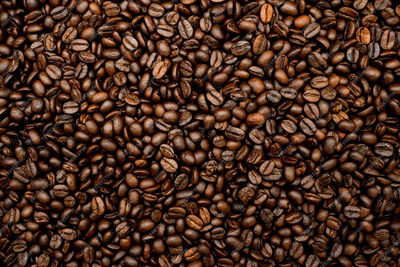
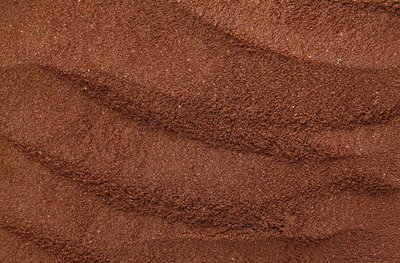
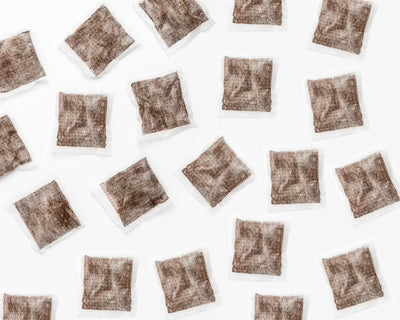
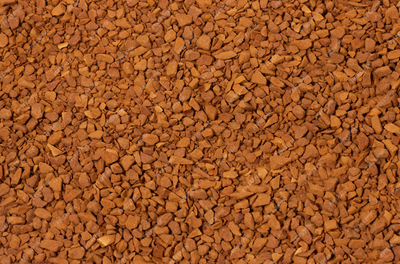
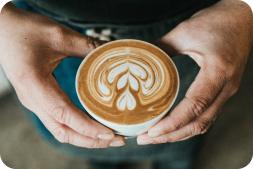

 Log in
Log in

